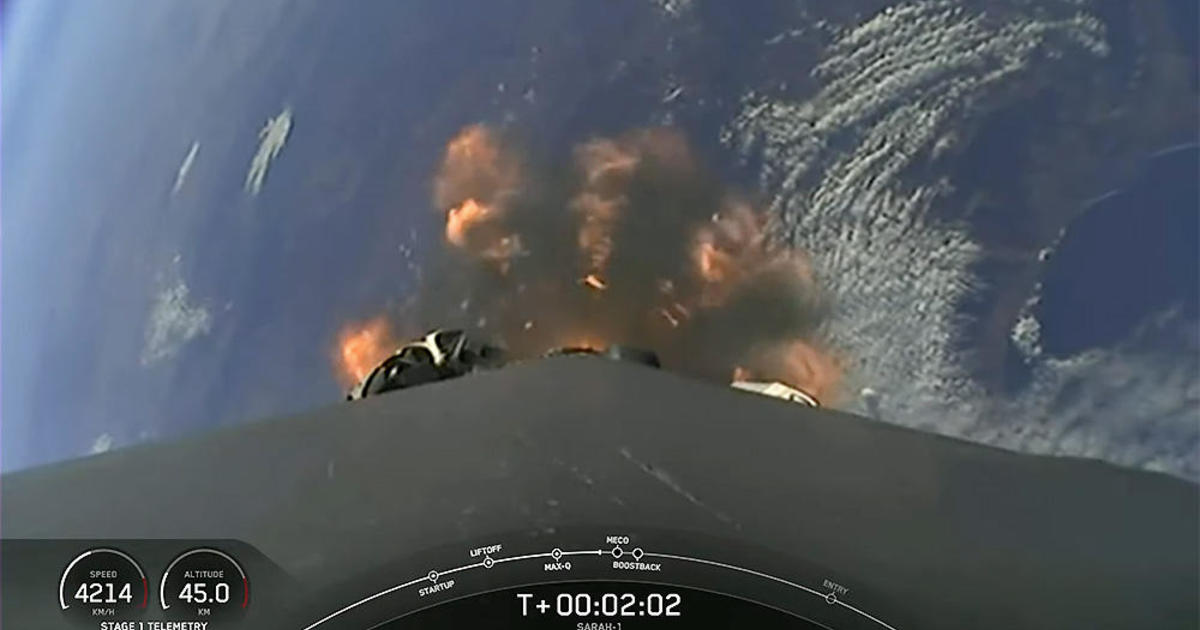Less than 24 hours after launching 53 Starlink satellites from Florida, SpaceX launched a German radar reconnaissance satellite from California’s Vandenberg Space Force Base on Saturday. The successful flight set the stage for a third Falcon 9 launch back in Florida just 14 hours later.
If Sunday’s launch of a Globalstar communications satellite goes off on schedule, it will mark the fastest three-flight cadence for an orbit-class rocket in modern space history, chalking up SpaceX’s 158th, 159th and 160th Falcon 9 flights in just 36 hours and 18 minutes. More than 50 launches are expected by the end of the year.
A camera attached to the side of a SpaceX Falcon 9 rocket shows the California coast dropping away below as the booster climbed toward space carrying a German reconnaissance satellite. It was the second of three planned Falcon 9 flights in just 36 hours.
SpaceX webcast
Saturday’s flight began at 10:17 a.m. EDT (7:17 a.m. local time) when a Falcon 9 vaulted away from fog-shrouded pad 4E at Vandenberg Space Force Base northwest of Los Angeles. Perched atop the slender rocket was a German radar reconnaissance satellite known as SARah 1, the first of three planned by the Bundeswehr defense ministry to replace an aging, less-capable system.
The satellite was launched into an orbit around Earth’s poles where it will be able to observe any point on the surface with cloud-penetrating radar, day or night, as the planet rotates below.
But in keeping with normal practice when launching national security payloads, SpaceX provided no details about the orbit or the performance of the Falcon 9’s second stage. The German military did, however, confirm the satellite’s successful deployment from the Falcon 9.
Bill Harwood has been covering the U.S. space program full-time since 1984, first as Cape Canaveral bureau chief for United Press International and now as a consultant for CBS News. He covered 129 space shuttle missions, every interplanetary flight since Voyager 2’s flyby of Neptune and scores of commercial and military launches. Based at the Kennedy Space Center in Florida, Harwood is a devoted amateur astronomer and co-author of “Comm Check: The Final Flight of Shuttle Columbia.”
